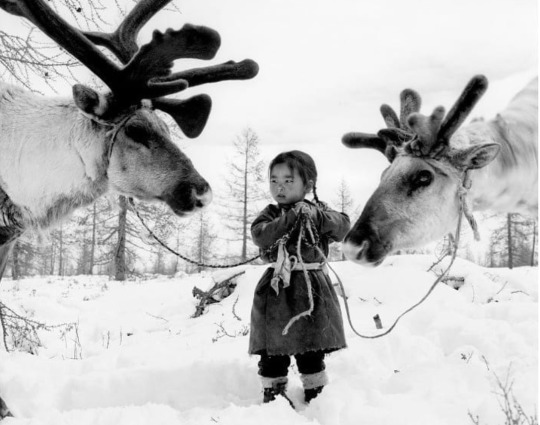#Dukha
Explore tagged Tumblr posts
Text

The tool holding two reindeer in Taiga, Dukha, Mongolia, 2007 - by Jeroen Toirkens (1971), Dutch
951 notes
·
View notes
Text

Dukha shaman, Mongolia, by jkboy_jatenipat
#dukha#mongolia#asia#east asia#folk clothing#traditional clothing#traditional fashion#cultural clothing
381 notes
·
View notes
Text
The understanding that there is a self (Jiva) And things belonging to self is delusion (Maya) This delusion is the root of suffering (Dukha) Nirvana is awakening to No-Self (Shiva) - Dr Devang H Dattani
Good Morning
Quote / Poem / Poetry / Quotes Of
Bhagwan Sri Sri Sri
Doctor Devang H Dattani
Infinite SriSriSri DDD
Posted By TheBlissCity DDD Team
See The Media Photo Video For
Quoteoftheday
God Morning
#self , #bliss , #TheBlissCity , #philosophy , #mindfulness , #DrDevangHDattani , #nature , #awareness , #InfiniteSriSriSriDDD , #quotes , #life , #art , #zen , #awakening , #quote , #spiritual , #photography , #Video , #meditation , #psychology , #poem , #poetry , #motivation , #inspiration , #quoteoftheday , #love , #words , #thoughts , #joy , #pun , #enlightenment , #health , #mental health , #consciousness , #suffering , #god , #autumn , #video , #delusion , #nirvana , #jiva , #maya , #dukha , #shiva , #blessings , #leaves , #landscape , #video post
#autumn#artists on tumblr#shiva#jiva#dukha#maya#photographers on tumblr#tantra#deadpool#yoga#gravity falls#supernatural#TheBlissCity#philosophy#mindfulness#DrDevangHDattani#naturecore#awareness#InfiniteSriSriSriDDD#quotes#art#awakening#quote#spiritual#photography#video#meditation#psychology#poetry#motivation
40 notes
·
View notes
Text

Dukha/Tsaatan boy, Mongolia
14 notes
·
View notes
Text
youtube
In Northern Mongolia, a sacred alliance exists between people, ancestor spirits and reindeer. We are invited in a family of Dukha reindeer nomads during their migration through the forests of Mongolia's Hovsgol province. The oldest Dukha, is a divine seer, a 96-year old shaman, called Tsuyan. She is the link between the healing songs of the forest ancestors, her people and their reindeer. To live in harmony with them, people had to learn to respect nature and animals and to pass down their beliefs, from generation to generation, by invoking the song-lines of their deceased ancestors.
1 note
·
View note
Text

Monstertober Day 12: Centaur + Cold
#my dumb art#monstertober#monstertober2024#monstertober 2024#Centaur#Cervitaur#kind of I guess//#They are based of of the Dukha people and their reindeer/
553 notes
·
View notes
Text
new hetalia oc's!!
my designs of Tuva and Dukha republics!







best father and daughter award goes to them 💗
#hetalia#hws#hetalia world stars#axis powers hetalia#axis powers ヘタリア#hetalia fanart#aph tuva#aph dukha#look at them#tuva is the best dad ever
18 notes
·
View notes
Text
... ☝️
are u ever sick w longing. and i don't just mean romantic longing. i mean longing for a place you barely get to see, longing for friends you no longer have, longing for feelings you might have left behind in your childhood, longing for creativity, longing for a rich and more expansive life, longing for less inhibition. longing for more passion. longing for ur life to be so incandescent w something it thaws all the frost in ur bones. are u ever so consumed w it it rends ur heart in two. do u understand me
#i always see posts like this and go#''yes yes the persistent sense of lack and suffering that ranges from minor to soul-crushing but always remains#we all know what dukha and samsara are''#and i have to remember that this. is not applicable to everyone and not everyone would think like this#but like this is dukha on the head
95K notes
·
View notes
Text

Jeroen Toirkens, girl holding two reindeer in Taiga, Dukha, Mongolia
3K notes
·
View notes
Text
Dede Korkut: Wild Dumrul Son of Dukha Koja (EN)

View On WordPress
#Central Asian literature#cultural heritage#Dede Korkut#Dukha Koja#Epic tales#Legends and heroes#Mythology#Oral tradition#Turkish folklore#Wild Dumrul
0 notes
Text
Desire builds complex machines for it's own suicide. The building process gives off dukha in the form of chaff.
383 notes
·
View notes
Text

Winter ideas ☃️
Inspired by the Dukha and Inuit tribes🦌🐕
#sky children of the light#sky cotl fanart#concept art#illustration#sky cotl#sky fanart#skychildrenoflightfanart#sky星を紡ぐ子どもたち#creature design#concept design#concept drawing#worldbuilding#fanart#that sky game#inuit#sky art
340 notes
·
View notes
Text
Do not make any real and firm effort except to annihilate the feeling 'I am the body' [the ego]. Know that the ego, 'I am the body', is the sole cause of all samsara-dukha the miseries of life.
Ramana Maharishi
16 notes
·
View notes
Text
I wish you all a very happy, stressfree and aaj ke liye bas itna hi., aapki tarah mai bhi mayus hu lekin ummeed par toh duniya kayam hai dil dukha hai par tuta toh nahi hai aur umeed ka daman chuta toh nahi hai free 2025 guyss bhagwan apko sabr de khoob tarakki karo mauj karo..
26 notes
·
View notes
Text

The Tsaatan (Dukha) Reindeer Nomads, Mongolian North, Hamid Sardar-Afkhami
11 notes
·
View notes
Text
buddhism in rain world and houseki no kuni (spoilers but you need them anyways)
This week the houseki no kuni rain world overlap is once again breaking my brain. I will say rainworld is more autistic yeah yeah i said hnk is for casuals. Hnk is more dense conceptually and literary wise (like it's basically a buddhist academic analysis in the form of a difficult to comprehend manga), but rain world has the high barrier to entry that you almost need a special interest preoccupation to overcome. Both attract non-binary genders similar to how female mosquitos flock to me. Both are very much "just a little guy" series with themes of bodies and identity. From gems carved to be the same shape by an unintentional tradition started out of an innocent request. To the limitations of the body and how that informs societal role and value, and ultimately self image. To the dissolution of the physical form to embrace fluidity and expression. Scugs just being little non gendered guys. Iterators rotting away in metropolis sized cans. The rain world ancients, bare androgynous bodied but heads covered in elaborate helmets and eyes scratched out in all their art. Bleak desolate post apocalyptic yet beautiful worlds where the human-like precursor species have abandoned the physical world. Highly advanced decadent societies that sought oblivion through the laziest means possible. Built machines to do it for them, outsourcing enlightenment to someone else. And yet in each series a lower life form grasps what these advanced civilizations could not, a simple truth all on their own in accepting their lives as dog and slugcat do what the greatest philosophers could not. Time isn't real.
Both are pretty ambiguous in message like i still don't know what's going on. You better be going into houseki no kuni fluent in japanese, chinese, pali, and have 15 phds in buddhist iconography, pure land buddhist theology, buddhist history, gender theory and also know about japanese idol culture. Ichikawa maybe is critiquing japanese pure land buddhism in it's belief that prayer can lead to the pure land instead of actually internalizing the philosophy and changing one's lifestyle. You have to do the spiritual work yourself and find answers yourself, not have someone else save you or pay your way through like in pure land buddhism. There's a lot of ambiguity in this series like whether the lunarians actually successfully erased themselves or just mixed themselves back into the cosic soup to be reincarnated again one day, my best guess is their grand 10,000 year plan failed. There's also possible critique of the pure land concept too maybe as in the final chapters the pebble gang is still in the same universe, the new planet is still a part of the same universe. But there is the imagery and metaphor of going to the pure land so who knows. My best guess is that the pure land imagery is invoked to say paradise isn't some mystical land, it's already here with us within reach. Also this is ichikawa's second work where the gang leaves the solar system to free themselves of the chains of patriarchy and 2 makes a pattern.
Rain world by its minimalist storytelling nature is simpler or cleaner. It feels like an exploration for the player in concepts of buddhism. Like samsara and karma are interpreted literally through the gameplay loop while in buddhism these don't come into play in a single life time you only see the effects of a life's actions in the next life, things are tallied when you die not as you go. Saint as a bodhisattva is also straightforward. Pretty much everyone's stuck in the world in a state of discontent. The iterators especially are unhappy because they all desire things, they're tied to a duty by creators that have left them behind. The existentialism, the dukha, it's all very buddhist. So I'll skip all that and get to the interesting stuff.
The complexity comes from rain world's people. The portrayal of the ancients/benefactors/creator species in particular fascinates me. And it brings the question whether ascension using void fluid really is this grand holy spiritual completion. Excluding the ending sequence all we know is that no one comes back. The ending sequence maybe have unreliable narrators or represent the slugcats wishes or be non literal, I take them with a grain of salt. Those endings are ominous af. It's important to remember the ancient held beliefs about being trapped in the cycles of the world with the root of that being attachments to the world through the 5 natural desires (violence, gluttony, lust, companionship, self preservation) even before the discovery of void fluid monks were starving themselves and writing about how horrible the world was to live in. While the iterators and ancients are all desperate and suffering trying to die it's the slugcats that find the answer and i dont just mean saint. Gourmand doesn't anguish over being stuck in this world, they let go and live and in this way I'd argue actually get closer to buddhism and what the ancients and iterators try to achieve but fail and end up relying on void fluid for. Gourmand finds one of the answers to life and frees themself from the suffering of the world, they even literally open the path for other slugcats to follow and live their lives. Gourmand lives life counter to ancient philosophy and shows how one can also live outside if buddhism.
Buddhism is inherently existential or since it came first it'd be more accurate to say existentialism is inherently buddhist. One of the key ideas in buddhism is nonself (anatta) in that there is no true self or soul, no divine purpose, you are what you are and you will be what you will be. Change is constant and inevitable, all is impermanent (anicca) and so every person changes and every version is their true self. There is no essence and so there can be no essence proceeding existence. Houseki starts with phos searching for a purpose because they were born with a body that could not perform the taks his society valued. This sparks a journey where phos continuously changes beyond all recognition searching for something he doesn't even know. And I'm not sure there is answer at the end, that there is no definitive meaning to life but life continues anyways, always changing? In rain world natural species no longer exist in this world all substantial species were designed for a purpose and most of those purposes are now obsolete. For the iterators the world is rapidly spinning out if control and leaving them behind. Drastic environmental changes occur through the timeline of the game. Five Pebbles goes from fully functional, creates Rot, deluges the region trying to purge it, has his entire body eaten by rot, and ends up broken in the blizzard covered ruins. For all the iterators their structures are constantly degrading with no way to completely restore them back to new, everything just keeps deteriorating away.
there's a reason most of rain world's fandom consists of autistic trans enbys. Many reasons really.
8 notes
·
View notes